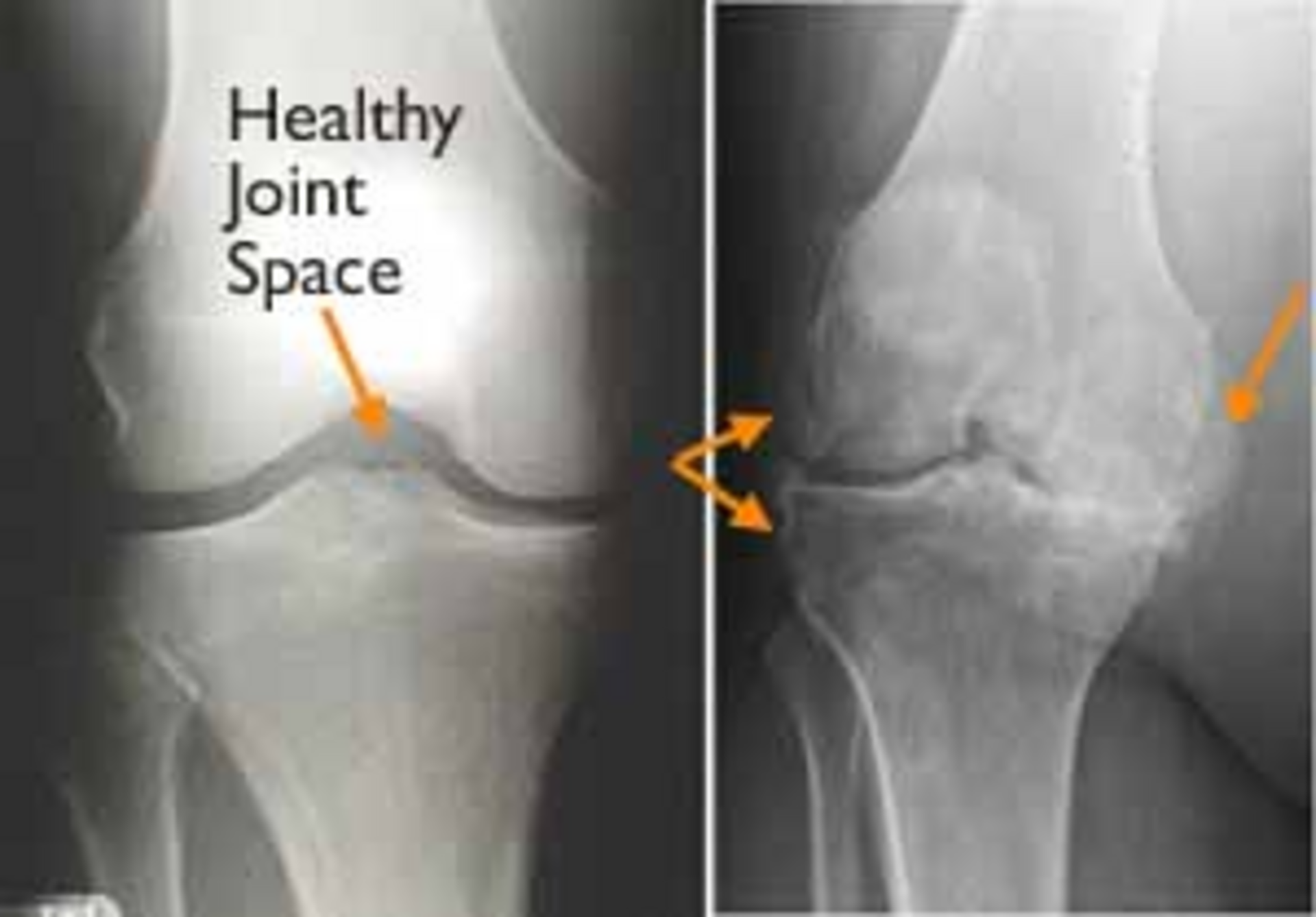Is Total Knee Replacement for You?
When Surgery Is Recommended
There are several reasons why your doctor may recommend knee replacement surgery. People who benefit from total knee replacement often have:
A knee that has become bowed as a result of severe arthritis.
Candidates for Surgery
There are no absolute age or weight restrictions for total knee replacement surgery.
Recommendations for surgery are based on a patient's pain and disability, not age. Most patients who undergo total knee replacement are age 50 to 80, but orthopaedic surgeons evaluate patients individually. Total knee replacements have been performed successfully at all ages, from the young teenager with juvenile arthritis to the elderly patient with degenerative arthritis.
Orthopaedic Evaluation
Other tests. Occasionally blood tests, or advanced imaging such as a magnetic resonance imaging (MRI) scan, may be needed to determine the condition of your knee's bone and soft tissues.

(Left) In this x-ray of a normal knee, the space between the bones indicates healthy cartilage (arrow). (Right) This x-ray of an arthritic knee shows severe loss of joint space and bone spurs (arrows).
Deciding to Have Knee Replacement Surgery
Realistic Expectation: More than 90% of people who have total knee replacement surgery experience a dramatic reduction of knee pain and a significant improvement in the ability to perform common activities of daily living. Most surgeons advise against high-impact activities such as running, jogging, jumping, or other high-impact sports for the rest of your life after surgery. Realistic activities following total knee replacement include unlimited walking, swimming, golf, driving, light hiking, biking, ballroom dancing, and other low-impact sports.